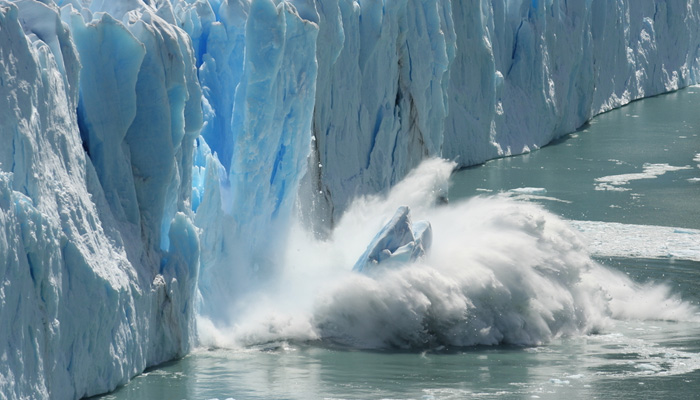Shutterstock
Antarctica is losing ice at a rate of six times higher than it was four decades ago, as the world’s oceans experienced their warmest year on record.

A new study has found that Antarctica is losing ice at a rate of six times higher than it was 40 years ago.
From 1979 to 1989, glacier ice melted in Antarctica at a rate of approximately 40 billion tons per year.
But starting in 2009, the amount of ice melting each year in Antarctica increased to 252 billion tons per year.
The new study was published in the Proceedings of the National Academy of Sciences, and was a joint effort by glaciologists from the University of California, Irvine, NASA’s Jet Propulsion Laboratory and the Netherlands’ Utrecht University, using data and imagery taken from NASA’s Operation IceBridge, satellite radar interferometry from multiple space agencies, as well as, the Landsat satellite imagery series.
The ice sheet in Antarctica holds about 90 percent of the world’s ice. According to the US geological survey, if all of Antarctica’s ice were to melt, sea levels would rise by about 240 feet. Every coastal city on earth would flood.
At the rate Antarctica is currently losing ice, scientists expect that in the coming decades if climate change isn’t deterred, it is likely the world’s sea level will rise. Experts say that beyond 30 years from now, coastal cities, such as those in South Florida, could be flooded or submerged.
Since the time humans first began tracking ocean temperatures, in 2018, the world’s oceans reached their highest temperatures ever recorded.
Scientists say that ocean water temperatures are the planet’s “thermometer” that gives us a clear measurement and representation of global warming.
As more and more human-caused greenhouse gases are released, this warming of the atmosphere is absorbed by the planet’s oceans at a rate of 93 percent.
The downside of heat absorption by the world’s oceans is rising water temperatures, which has a long-lasting and significant impact.
According to other recent research, studies have found that warming sea waters creates a number of detrimental effects: stronger waves and stronger storms, which increases the impact of damage inflicted by hurricanes and tropical storms.
The warmer waters also put stress on fisheries and damage coral habitats, which also decreases sea life.